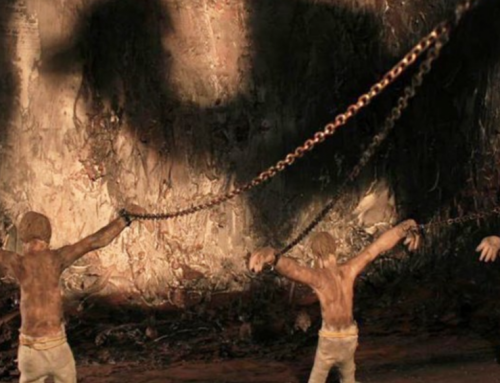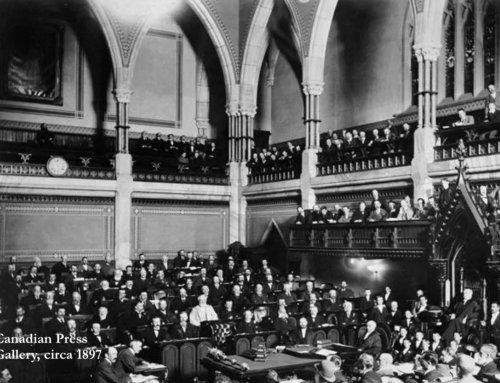twisted populism, failing leadership and genetically driven Darwinian leaders?
Double, double toil and trouble; Fire leaders, and burst their bubble; Fair is foul, and foul is fair, The peoples’ cupboard is always bare. When the hurlyburly’s done, When the battle’s lost and won, That will be ere the set of sun, and the populist movement overcome. – adapted from Shakespeare’s Macbeth, Scene: 21st century, western liberalism.
Five things you might not know
- The derivation of the name “MacBeth” carries an implication of “righteous man,” which ironically mischaracterizes the real Macbeth, as well as Shakespeare’s fictional king and most of the so-called leaders across history.
- Populism, “expressed in the yearnings of middle–class constituents … and celebrating, at least rhetorically, the populist ideal of the people’s community” was how “the National Socialists [Nazis] cast themselves as representatives of the commonwealth.”
- The USA is 21st on the list of democratic nations and it has been downgraded to a “flawed democracy.” Norway is #1. Canada is #6. Canada, unlike the United States, is a mosaic rather than a melting pot and is not a populist hotbed for broken expectations, yet.
- We have met the enemy and it is us. It’s not Islam or communism or other outside forces, it’s our marching-in-lockstep, across the political spectrum from left to right, back and forth to the incessant drumbeat of insular, myopic, hardened ideologies.
- Darwin’s “survival of the fittest” principle becomes counterproductive when tribalism causes a fight for economic and political power that ignores the survival of the species as a whole.
(8 minute read)
Historically, populism has been around since the emergence of democracy, pitting the common people against the corrupt elite. It has been the soup du jour on every menu of every autocrat, dictator and monarch, from Macbeth, King of Scotland (the real Macbeth, circa 1040, not Shakespeare’s Macbeth, circa 1600) to Donald Trump, who has illusions of being a king. Populism is supposed to be a good thing, except the oligarchs and autocrats apply it in name only and then twist, stir and serve it up for their own benefit.

Mac Bethad, King of Scotland (reign: 1040-1057)
If the witches in Shakespeare’s Macbeth saw trouble coming – three bright women with nothing more than a caldron of nasty brew – why the hell can’t today’s common people see the bubbling cauldron of fake democracy and failed leadership? In the United States, why can’t Trump supporters – who are sick of the shit Washington has stirred and served up for decades – see the same shit being served up by Trump and his cronies? It’s the same toxic, swampy brew he said he’d drain. Labeling it populism doesn’t change anything? Is Trump any different than Macbeth and a history of monarchs and autocratic leaders who have played the populism game to meet their own ends? Populism is a political euphemism for a pissed-off citizenry and it’s used to drum up support for the next autocrat to dress up dictatorial power as democracy.
pop•u•lism (noun): 1) support for the concerns of ordinary people: “it is clear that your populism identifies with the folks on the bottom of the ladder;” 2) the quality of appealing to or being aimed at ordinary people: “art museums did not gain bigger audiences through a new populism.”
Populism and protests seldom turn into revolutionary change, they’re just cathartic exercises by the bourgeois against continuing subjugation. Which raises the questions as to why do “we the people,” century after century, accept the same soup du jour on the political menu with nothing more than a few minor protests like Brexit, the Million Man March (1995) and the women’s march in January 2017 (see earlier blog: Hell hath no fury like a woman scorned).
There is an endless list of protests and revolts across history and a quick review exposes the futility of most. Sure Julius Caesar crossed the Rubicon in revolt and enjoyed a successful dictatorship for a few years before his assassination. The American and French Revolutions claimed temporary victory against monarchies only to become oligarchies. The American Civil War was a revolt against slavery, which took another hundred years to become the Civil Rights Act. The 1917 Russian Revolution overthrew oppressive czarist rule only to become more oppressive. And women’s suffrage started the advancement of women that continues to come up shamefully short a hundred years later. Populism is just an agent for furthering the myth of democracy.
Beware the clarion of populist movements

A young Adolf Hilter
Even a uneducated, bohemian artist who can design a swastika can tap into populist sentiments, as was the case in post-WWI Germany when Adolf Hitler, at age thirty, did just that. He turned populism into the most heinous political manipulation in modern history and we must never forget how it established a foothold. It’s human nature to forget history, particularly our biggest failures and yet, we can learn more by objectively analyzing such failure.
The Nazis expressed the populist yearnings of middle–class constituents and at the same time advocated a strong and resolutely anti-Marxist mobilization….Against “unnaturally” divisive parties and querulous organized interest groups, National Socialists cast themselves as representatives of the commonwealth, of an allegedly betrayed and neglected German public … breaking social barriers of status and caste, and celebrating at least rhetorically the populist ideal of the people’s community… – Hans Fritzsche.
A book, Young Hitler by Claus Hant provides a rare look into Hitler’s youth (16 to 30) and how a young, eccentric drifter transforms into one of history’s most diabolical and monstrous leaders – on the backs of the dual populist sentiments of unfulfilled expectations and a self-righteous sense of national destiny. Today, if we could get past our ideological myopia, we might see the troubling similarities inherent in populism across the United States and other countries.
O Canada
 In Canada, populism does not have the same hotbed of broken expectations. A recent New York Times article, Canada’s Secret to Resisting the West’s Populist Wave, points out that there are no signs yet of a populist movement. Although the country, as in the United States, has a “white ethnic majority that is losing its dominance” there are numerous reasons why there is not a right-wing insurgence. Here are a few excerpts from the article:
In Canada, populism does not have the same hotbed of broken expectations. A recent New York Times article, Canada’s Secret to Resisting the West’s Populist Wave, points out that there are no signs yet of a populist movement. Although the country, as in the United States, has a “white ethnic majority that is losing its dominance” there are numerous reasons why there is not a right-wing insurgence. Here are a few excerpts from the article:
- Canada is a mosaic rather than a melting pot.
- Immigration and racial diversity are sources of national pride. There is a broad political consensus around immigrants’ place in Canada’s national identity and immigration is seen as something that benefits everyone.
- Strong minority coalitions. Both whites and nonwhites see Canadian identity as something that not only can accommodate outsiders, but is enhanced by the inclusion of many different kinds of people.
- All political parties compete for all ethnic blocs. That leaves little incentive for tribalism.
- Canada has a popular centrist liberal establishment.
- Most Canadians are less likely to see politics as a game of us versus them.
The myth of populism
The Economist Intelligence Unit’s “Democracy Index 2016” ranks 165 countries as having some form of democracy and yet, only 19 make the grade as “full democracies.” The USA is 21st, having been downgraded to a “flawed democracy.” Norway is #1. Canada is #6 (see earlier blog: The hypocrisy of democracy is the elephant in the room). We are stuck in sclerotic political and economic systems that ignore the long-term reality and repeatedly serve short-term, self-interests. It’s a result of the lack of principled-leadership, the absence of vision and wisdom, and it confirms the prescience of Charles Darwin’s assessment of the human species.
“Intelligence is based on how efficient a species became at doing the things they need to survive.” – Charles Darwin.
It doesn’t seem to matter whether a populist fomentation is for or against a particular ideological bulwark, all are short lived and actually just foster the reign of another autocrat or gaggle of oligarchs. Whether it’s a liberal or conservative democracy or some form of communism or fascism, the one thing history has shown is that we continue to fail at creating an economic and political model that effectively organizes our societies. What we have achieved has been temporary. And if we consider a couple of thousand years as a reasonable time span to measure the capability of the leaders who have graced the world stage, we cannot issue them a passing grade. Despite all the things we herald as “progress,” and the great minds and spirits of a few, we are really no further head in our capacity to lead than when Plato expressed his concept for philosopher-kings or Alexis de Tocqueville wrote his assessment of “Democracy in America.”
“In such conditions, we might become so enamored with ‘a relaxed love of present enjoyments’ that we lose interest in the future of our descendants…and meekly allow ourselves to be led in ignorance by a despotic force all the more powerful because it does not resemble one.” – Alexis de Tocqueville
In measuring this lack of leadership, I have often cited what I consider one of the most succinct, perspicacious, profound, short essays written in the last half-century: Carl Sagan’s, The Pale Blue Dot. It is only 350 words and has been made into a short video countless times. It says it all (see both at my earlier blog, The Pale Blue Dot).
“We have met the enemy and he is us.” – Pogo.
 Today, as the democratic experiment, in all its iterations, appears ready to recycle itself, the risk facing Western democracy is internal, not external. The greatest enemy is us. It’s not Islam or communism or other outside forces, it’s our marching-in-lockstep, from left to right across the political spectrum, to the incessant drumbeat of insular, myopic, hardened ideologies. Politicians and their tribes can’t, or won’t, see the dying forest of democracy for their own rotting, partisan trees. And they’ve lost the idea of an all-inclusive big tent to a commitment to small tents of tribes and clans.
Today, as the democratic experiment, in all its iterations, appears ready to recycle itself, the risk facing Western democracy is internal, not external. The greatest enemy is us. It’s not Islam or communism or other outside forces, it’s our marching-in-lockstep, from left to right across the political spectrum, to the incessant drumbeat of insular, myopic, hardened ideologies. Politicians and their tribes can’t, or won’t, see the dying forest of democracy for their own rotting, partisan trees. And they’ve lost the idea of an all-inclusive big tent to a commitment to small tents of tribes and clans.
David Brooks, a conservative commentator, said in a recent op-ed that “there is a structural flaw in modern capitalism” and Republican politicians do not have “a vision for how they want American society to be in the 21st century” rather they have “a vision of how they want American government to be in the 21st century.” On top of this, they have a President who is what Brooks calls, “a tribalist and a clanist.” When leaders and their small tribes and clans have no vision and are simplistically anti-government, anti-incumbents, anti-others, it becomes the bait-and-switch strategy of populist politics. Fire’em up, promise’em what they want, reel’em in and then leverage’em for what serves the self-interest of leadership, which is driven by an addiction to economic greed, not social values. Thus each new era is ushered in as an autocracy and oligarchy masquerading as democracy.
“We learn from history that we do not learn from history.” – Friedrich Hegel
Throughout our so-called democracies, we have clung to variations of a basic model that we keep retreading with worn out ideas and policies, while living in denial of its ongoing failure. We swing back and forth like a pendulum but never make much forward progress. It’s a merry-go-round. Nietzsche called it “eternal recurrence.” Of course, we’ve moved forward in terms of materialism, technology and economic growth – mainly for the top 1% – but, relative to our self-proclaimed capability, we have achieved little for the human species in terms of the advancement of prosperity for the majority and the inherent improvement of values and morality.
Is today’s leadership problem just a way-station on the arc of evolution?
“What we may be witnessing is not just the end of the Cold War . . . but the end of history as such: that is, the end point of mankind’s ideological evolution and the universalisation of Western liberal democracy as the final form of human government.” – Francis Fukuyama, The End of History.
 Edward Luce has written a must-read book, The Retreat of Western Liberalism. He sets out in stark terms the crisis and decline we are all witnessing. He demonstrates how the likes of Trump, Le Pen and Heinz-Christian Strache have ridden populist waves but are mere symptoms of a much more threatening cause: the dysfunction of the political system; the erosion of the middle class; our ignorance of history; the arrogance of economic elites; and our refusal to even consider changing course. Luce states, “To be clear: the West’s souring mood [populism] is about the psychology of dashed expectations rather than the decline in material comforts …” and as a consequence, “Belief in an authoritarian version of national destiny is staging a powerful comeback. Western liberalism is under siege.” His evidence aligns with Fukuyama’s postulate and presents a frightening harbinger.
Edward Luce has written a must-read book, The Retreat of Western Liberalism. He sets out in stark terms the crisis and decline we are all witnessing. He demonstrates how the likes of Trump, Le Pen and Heinz-Christian Strache have ridden populist waves but are mere symptoms of a much more threatening cause: the dysfunction of the political system; the erosion of the middle class; our ignorance of history; the arrogance of economic elites; and our refusal to even consider changing course. Luce states, “To be clear: the West’s souring mood [populism] is about the psychology of dashed expectations rather than the decline in material comforts …” and as a consequence, “Belief in an authoritarian version of national destiny is staging a powerful comeback. Western liberalism is under siege.” His evidence aligns with Fukuyama’s postulate and presents a frightening harbinger.
The irony is obvious and the explanation is in our history and biology – not in another leadership or management theory by some rock-star thought-leader. Today’s leadership (the elite across the political and corporate landscape) does not seem to acknowledge that the hollowing out of the middle class is the base ingredient in their own demise and that the falsehood of trickle-down economics will eventually be their Waterloo. Luce cites Barrington Moore, the American sociologist, who said, “No bourgeoisie, no democracy.” That could extrapolate to: No thriving middle class, no enduring society.
The irony – or ignorance – among leadership is captured in the fable of the scorpion who gets a ride on a frog across a river and when the scorpion stings the frog, the frog asks, just before they both drown, “Why?” The scorpion answers, “It’s in my nature….” The elite have been riding on the backs of the poor and middle class for centuries and relentlessly stinging them as part of the consumption-production equation that provides their wealth and yet, now, in the middle of a river of potentially dire consequences, they refuse to change because “it is in their nature.” In the animal kingdom, it’s the equivalent of “eating their young.”
“If the misery of the poor be caused not by the laws of nature, but by our institutions, great is our sin.” – Charles Darwin.
Renowned geneticist, Richard Dawkins, in his book The Selfish Gene, states that this inability to live beyond our selfishness is genetic and only countered by generational change in cultures over long periods. Never by economic cycles. As Darwin demonstrated, the innate “survival of the fittest” principle becomes counterproductive when tribalism causes a fight for economic and political power that ignores the survival of the species as a whole. A read of Darwin, Dawkins and E. O. Wilson (this is just the short list) raises the question: Is the human species and our leaders capable of thinking and operating independently of the inherent bias in our selfish genes? Darwin, Dawkins, Wilson and numerous others doubt it. Because we have simply not advanced enough along the arc of evolution (see earlier blog: Great leaders understand three things: memes, genes and tribalism).
“We have created a Star Wars civilization with Stone Age emotions, medieval institutions and god-like technology. We thrash about. We are terribly confused by the mere fact of our existence, and are a danger to ourselves and to the rest of life.” – Edward O. Wilson.
Four brewing questions

Double, double toil and trouble; Change the leaders, and burst the bubble.
- Why do we not accept that our leadership problems are deeply rooted in biological and sociobiological factors and why do leaders not understand and apply these most fundamental theories?
- Why are we mired in the cauldron of democracy with its lexicon of euphemistic language – from populism and progress to liberty and nationalism – and why do we not see that it’s nothing more than a placebo administered by leadership to tranquilize the majority?
- Is it because our lack of advancement as a species is, in fact, so dismal that we cannot face the reality of our own mediocrity nor are we willing to take on the almost insurmountable change required in our leadership behavior?
- Will our selfish genes always overpower our altruistic ones?
It is far better to have the wrong answer to the right question than it is to have the right answer to the wrong question.
Are we sinking in this cauldron of mythical progress because we keep coming up with the “right” answers to the wrong questions? Do we arrogantly believe we know the answers to the big questions when it’s self-evident that we ignore them? Can we hope to change the trajectory of humankind if we don’t admit we’ve created a toxic brew over the last two-thousand years and continue to ignore it, at our peril?
Where does the buck stop and when do more of the right questions begin?
“We must, however, acknowledge, as it seems to me, that man with all his noble qualities… still bears in his bodily frame the indelible stamp of his lowly origin.” – Charles Darwin.







Leave A Comment